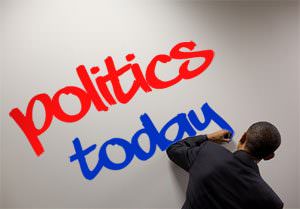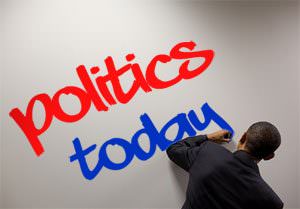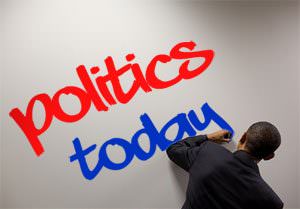A Repairman, Not a Revolutionary
Timothy Geithner has not been a good performer, but he does have a vision. He sees an improved Wall Street, though one not fundamentally different from what we have now.Treasury Secretary Timothy Geithner is a repairman, not a revolutionary. Contrary to the impression he sometimes gives, he does understand why the Sun King excesses of Wall Street’s pampered executives make people so angry. Essentially, though, he blames the players, not the game.
“We still have a system that has been exceptionally good, better than any other, in getting capital to the guy who has an idea,” Geithner said Monday in an interview. Hours earlier, he had rolled out his long-awaited plan to get credit flowing through the economy again; after my last question, he dashed from his Treasury office to the White House next door for a meeting with President Obama and the rest of his economic team. They had good news to talk about, for a change: At least initially, the markets reacted favorably to Geithner’s proposal to enlist private capital in cleansing the system of paralyzing “toxic” assets.
The grandees of Wall Street have every incentive to do anything they can to bolster Geithner’s position, since he’s the kindly sheriff who stands between them and the snarling mob at the gate.
But Wall Street seems to have gone out of its way to make Geithner’s job more difficult. The “retention” bonuses at the insurance giant AIG — to which the government has made available an astounding $170 billion in aid — dominated the news cycle for a full week. On Thursday, we learned that Citigroup, recipient of $45 billion in bailout money, had decided to spend $10 million redecorating its executive offices. On Monday, ABC News revealed that JPMorgan Chase has plans to spend $138 million on two new corporate jets and improvements to its hangar at the Westchester, N.Y., airport; the company later said that it won’t proceed with the project until it has paid back its $25 billion in bailout money.
Geithner noted that the use of government resources to rescue Wall Street from its own foolish bets and boneheaded decisions actually began in late 2007. “Even after that, you had people making stunningly awful judgments” about corporate compensation and perks, Geithner said. “It makes it much harder for us.”
From Obama on down, the administration is displaying little enthusiasm for attempts in Congress to recover the $165 million in AIG bonuses through narrowly written tax legislation. Wall Street executives have been sputtering at the thought of “retroactive” taxation and grumbling that if this is the way things are going to be, they might decide to steer clear of any new government programs. Geithner needs Wall Street’s participation for his financial rescue plan to work.
But it seems to me that Wall Street should be the lesser of his worries. Geithner’s plan offers private investors the opportunity to reap relatively big gains by taking relatively small risks. Some of the risk is assumed by the taxpayers. Christina Romer, head of the Council of Economic Advisers, said over the weekend that these private firms will be doing the government a favor by participating in the program. But that’s wrong. Investors will participate because they think they can make money. The only entity that’s doing anyone a favor — make that doing everyone a favor — is the government of the United States.
“We can’t solve the financial crisis without the government taking risks,” Geithner said. An alternative approach in which the government would take over all the “toxic” assets would saddle taxpayers with more risk rather than less, he argued. But it’s unrealistic to expect citizens, having already poured more than $1 trillion into the Wall Street sinkhole, to react well when money managers haughtily make demands and set conditions.
Geithner has not been impressive as a performer. He talks so fast that it’s hard for listeners to keep up. Grand settings, such as his ornate office, seem to swallow him up.
He does have a vision, though. He sees, eventually, a reformed financial system in which the “too big to fail” behemoths such as AIG or Citigroup are required to run their businesses in a more conservative fashion. He sees better regulation and more transparency, so that hedge funds are not so opaque and the derivatives markets are not left unsupervised to run amok.
The goal that Geithner describes sounds like an improved system but not one that is fundamentally different from the system we have now. If populism is resurgent in the land, it doesn’t get past Geithner’s desk. Wall Street should be toasting the guy — but with beer, not champagne.
Eugene Robinson’s e-mail address is eugenerobinson(at)washpost.com.
© 2009, Washington Post Writers Group
Your support matters…Independent journalism is under threat and overshadowed by heavily funded mainstream media.
You can help level the playing field. Become a member.
Your tax-deductible contribution keeps us digging beneath the headlines to give you thought-provoking, investigative reporting and analysis that unearths what's really happening- without compromise.
Give today to support our courageous, independent journalists.






You need to be a supporter to comment.
There are currently no responses to this article.
Be the first to respond.